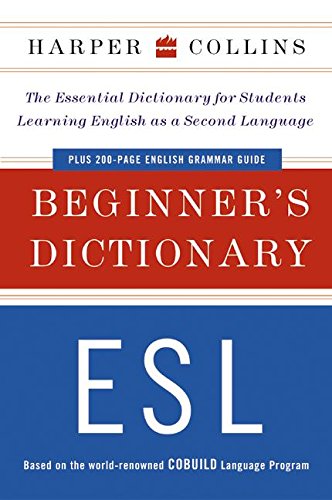Dictionaries are essential tools for anyone who wants to learn a new language, improve their vocabulary, or check the meaning and usage of words. But have you ever wondered how dictionaries are made? Who decides what words to include, how to define them, and how to pronounce them? And how often are dictionaries updated to reflect the changes in the language? In this article, we will answer these questions and give you some tips on how to choose the best dictionary for your English level.
How Dictionaries Get Their Definitions
Dictionaries are not just collections of words and meanings. They are the result of careful research, analysis, and editing by teams of experts called lexicographers. Lexicographers are people who study the language and its history, usage, and variation. They use various sources of evidence to create and revise dictionary entries, such as:
- Corpora: These are large databases of texts from different genres, registers, and domains, such as newspapers, books, websites, speeches, conversations, etc. Lexicographers use corpora to find out how words are used in real contexts, how often they occur, and what collocations, phrases, and idioms they form. For example, the Cambridge Learner’s Dictionary is based on the Cambridge English Corpus, which contains over 2 billion words.
- Questionnaires: These are surveys that lexicographers send to native speakers, experts, or learners of the language to gather information about their opinions, preferences, or experiences with words and expressions. For example, the Oxford English Dictionary (OED) has a website called OED Appeals, where anyone can submit suggestions or evidence for new or revised entries.
- Consultants: These are specialists in different fields of knowledge, such as science, law, medicine, etc., who provide lexicographers with accurate and up-to-date information about the terms and concepts in their domains. For example, the Longman Dictionary of Contemporary English has a team of over 200 consultants who help ensure the accuracy and relevance of the definitions.
- Feedback: This is the input that lexicographers receive from users, reviewers, or editors, who may point out errors, omissions, or suggestions for improvement in the dictionary entries. For example, the Merriam-Webster Dictionary has a feature called [Suggest a Word], where anyone can submit a word that they think should be added or updated in the dictionary.
How Often Dictionaries Are Updated
Dictionaries are not static products. They are constantly updated to reflect the changes and developments in the language and the world. New words are created, old words change their meanings, and some words become obsolete. Lexicographers monitor these changes and decide whether to add, modify, or delete entries in the dictionary. The frequency and scope of these updates depend on various factors, such as:
- The type of dictionary: Some dictionaries are more comprehensive and detailed than others, and therefore require more time and resources to update. For example, the OED is the most authoritative and historical dictionary of the English language, containing over 600,000 entries and tracing the origins and evolution of words from the earliest times to the present day. It is updated four times a year, but each update may only cover a few hundred words. On the other hand, the Oxford Advanced Learner’s Dictionary is a more practical and user-friendly dictionary for learners of English, containing over 60,000 entries and focusing on the current and common usage of words. It is updated more frequently, usually once a year, and each update may cover thousands of words.
- The medium of publication: Some dictionaries are published in print, some are available online, and some are both. Print dictionaries are more expensive and difficult to produce and distribute, and therefore tend to be updated less often. Online dictionaries are more flexible and convenient, and therefore tend to be updated more frequently. For example, the print edition of the Merriam-Webster Dictionary is updated every 10 years, while the online edition is updated every day.
- The demand and feedback from users: Some dictionaries are more popular and widely used than others, and therefore receive more attention and feedback from users. Lexicographers may prioritize the updates that are most relevant and requested by the users. For example, the Collins English Dictionary is one of the most innovative and responsive dictionaries, which uses social media, blogs, and podcasts to engage with users and invite them to vote for the [Word of the Year], which is a word that reflects the mood, events, or trends of the year.
How Dictionaries Add New Words to the Language
Dictionaries do not create new words. They record and describe the words that people use in their speech and writing. Lexicographers do not decide what words are valid or correct. They observe and analyze the evidence of how words are used in real contexts. Lexicographers do not impose rules or norms on the language. They explain and illustrate the patterns and variations of the language. In other words, dictionaries are descriptive, not prescriptive.
However, dictionaries do have an influence on the language and its users. Dictionaries can help spread and popularize new words, especially when they are featured in the media, social networks, or educational materials. Dictionaries can also help standardize and regulate new words, especially when they provide authoritative and consistent information about their spelling, pronunciation, meaning, and usage. Dictionaries can also help preserve and revitalize old words, especially when they highlight their historical and cultural significance.
How to Choose the Best Dictionary for Your English Level
There is no one-size-fits-all dictionary for everyone. Different dictionaries have different purposes, audiences, and features. Depending on your English level, goals, and preferences, you may need more than one dictionary to suit your needs. Here are some general guidelines on how to choose the best dictionary for your English level:
- If you are a beginner: You may want to start with a simple and easy-to-use dictionary that focuses on the most common and essential words and phrases in English. You may also benefit from a dictionary that has illustrations, audio pronunciations, and conversation guides. Some examples of dictionaries for beginners are:
- HarperCollins Beginner's ESL Dictionary:

- Oxford Picture Dictionary:
This dictionary has over 4,000 words with illustrations, organized into 12 thematic sections, such as family, health, work, etc. It also provides comprehension questions, activities, and a bilingual glossary for each topic. It also has an app and a website with interactive games and quizzes.
- If you are an intermediate: You may want to move on to a more comprehensive and detailed dictionary that covers a wider range of words and meanings, and provides more information on grammar, usage, and pronunciation. You may also benefit from a dictionary that has example sentences, synonyms, and collocations. Some examples of dictionaries for intermediates are:
- Cambridge Learner’s Dictionary:
This dictionary has over 35,000 words, phrases, and meanings, with simple definitions and audio pronunciations. It also has over 25,000 real examples from the Cambridge English Corpus, showing how words are used in context. It also has a thesaurus, a grammar reference, and a quiz feature.
- Longman Dictionary of Contemporary English:
This dictionary has over 80,000 words, phrases, and meanings, with clear definitions and examples. It also has over 200,000 collocations, showing how words are combined. It also has a thesaurus, a grammar guide, and a vocabulary trainer. It also has an app and a website with interactive exercises and videos.
- If you are an advanced: You may want to explore a more sophisticated and in-depth dictionary that covers the nuances and variations of words and meanings, and provides more information on etymology, history, and culture. You may also benefit from a dictionary that has idioms, phrasal verbs, and slang. Some examples of dictionaries for advanced learners are:
- Oxford Advanced Learner’s Dictionary:
This dictionary has over 60,000 words, phrases, and meanings, with detailed definitions and examples. It also has over 79,000 collocations, showing how words are used together. It also has a thesaurus, a grammar guide, and a word origin section. It also has an app and a website with interactive games and videos.
This dictionary has over 100,000 words and definitions, with examples and quotations from various sources. It also has over 500,000 synonyms and antonyms, showing the different shades of meaning. It also has a word of the day, a word game, and a word history feature. It also has an app and a website with audio pronunciations and videos.
Conclusion
Dictionaries are amazing resources that can help you learn and improve your English. But they are not magic. They are made by humans, for humans, and with humans. They reflect the diversity and dynamism of the language and its users. They also require your curiosity and creativity to make the most of them. So, don't be afraid to explore different dictionaries, compare them, and use them in different ways. You may be surprised by what you can discover and learn from them.
We hope you enjoyed this article and learned something new about dictionaries. If you did, please share it with your friends, colleagues, or students. And if you have any questions, comments, or suggestions, please let us know in the comment section below. We would love to hear from you and help you with your English learning journey. Thank you for reading and happy learning!









Social Plugin